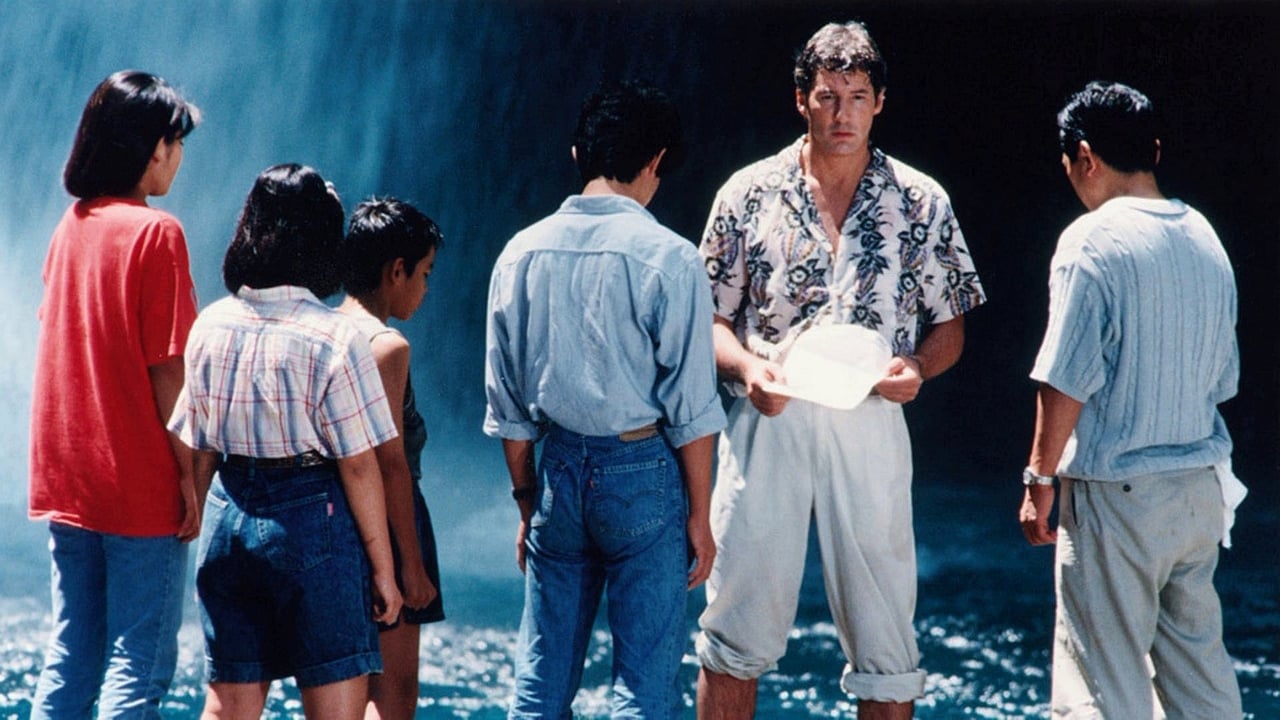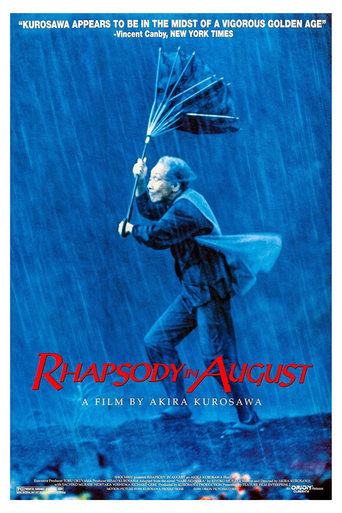

the leading man is my tpye
... View MoreThis movie tries so hard to be funny, yet it falls flat every time. Just another example of recycled ideas repackaged with women in an attempt to appeal to a certain audience.
... View MoreThere is definitely an excellent idea hidden in the background of the film. Unfortunately, it's difficult to find it.
... View MoreMostly, the movie is committed to the value of a good time.
... View MoreThis movie is not about whether the bomb should have been dropped. It is about war and the spoils of war. The grandma tells the children about death and destruction that happen when two forces attack one another. The problem in 1945 was that nuclear weapons were unleashed. However, going back in time, as soon as primitive man had sticks, they used them to bash each other over the head and the belongings went to the winner. This is a quiet tale of four Japanese teens who are being looked after by their grandma. She listens to them complain (even though their experiences are non-existent) and sends them off to investigate the city of Nagasaki. They are touched by the stories of the people who survived. They await a trip to Hawaii to see the brother of their grandmother, who is ill. Things get complicated due to the return of the parents and some miscommunication. The family is visited by a relative played by a very young Richard Gere. He is soft spoken and respectful. But the biggest scene stealer is the the grandma. She is so complex and believable. The final scene is striking cinematography. We learn the resiliency of the people and their efforts to hang on to the memories of those they lost and the evils of war in general. Quite a different tack for Kurosawa.
... View MoreAkira Kurosawa directs this 1991 film about three generations of a Japanese family who deal with the bombing of Nagasaki by US forces. The central focus of the film is a domestic drama between a old woman and her visiting grandchildren at her country home. Their parents are away seeing distant relatives in Hawaii, including a man who claims to be the grandmother's long lost brother. The kids convince her to go see him, but she's hesitant as she can't remember him - the rest of her family being killed in the nuclear blast.The movie focuses on her remembering her family and recounting to the kids stories of her past. In these quiet scenes of domesticity, Kurosawa maintains a level of serenity and allows the actors show off subtle, understated emotion (one example being early on when the grandmother, played by Sachiko Murase feels rejected when the children insist on cooking because they don't like her food).In comparison, when the kids go out to the city to find out more about the bombing, the movie becomes a bit overly dramatic, with classical music playing over the images of past sufferings (memorials, etc.). It didn't affect me emotionally as much as I would have wanted.Richard Gere's performance as the Japanese-American nephew is also a highlight of the movie. His scene where he apologies for the death of his aunt's husband in the bombing being an affecting one.Overall, I liked most of the movie - some of it I didn't like, but it's definitely worth watching for it's quiet dramatics, subtle themes and sometimes brilliant visuals.
... View MoreAkira Kurosawa, in the twilight of his career, turned his attention to a quiet study of lingering wartime trauma, showing different generations of Japanese civilians recalling the atom bombing of Nagasaki, with varying degrees of shame, understanding, and curiosity. By coincidence the film opened just after the 50-year anniversary of the attack on Pearl Harbor, but Kurosawa isn't interested in scratching old war wounds, and his characters show more envy than hatred of Western culture: note how the jeans and t-shirts worn by the younger kids are always colored in some combination of red, white and blue. But the story is too polite to generate anything resembling a conflict, and the occasional profound image (a rose in full bloom, surrounded by ants) may not be enough to hold the viewer's attention through the final credits. Late in life, Kurosawa the artist gave way to Kurosawa the messenger, and the result here is another mild disappointment from an acknowledged master filmmaker resting on his laurels: heartfelt and certainly respectable, but too often rarely more than simply dull.
... View MoreThis story is about the grandkids who come to stay with their elderly grandmother while their families go on vacation. At first, the kids are pretty bored living out in the country, but over time they grow to appreciate the simplicity as well as the chance to spend quality time with grandma. Slowly, she begins to talk to them about the past. It seems that their parents have never really told them about this--in particular, how grandma had survived a nuclear attack but had lost most of those she held dear. Unfortunately, while this is slowly revealed, at the same time, grandma's mind begins to wane and she ultimately degenerates into senility and despair. Later, the parents and Richard Gere of all people return and they talk about the past--until Gere finds out that his Japanese father died and he is wanted back home to make arrangements. A very odd film but interesting because it deals with the long-term impact of war.
... View More